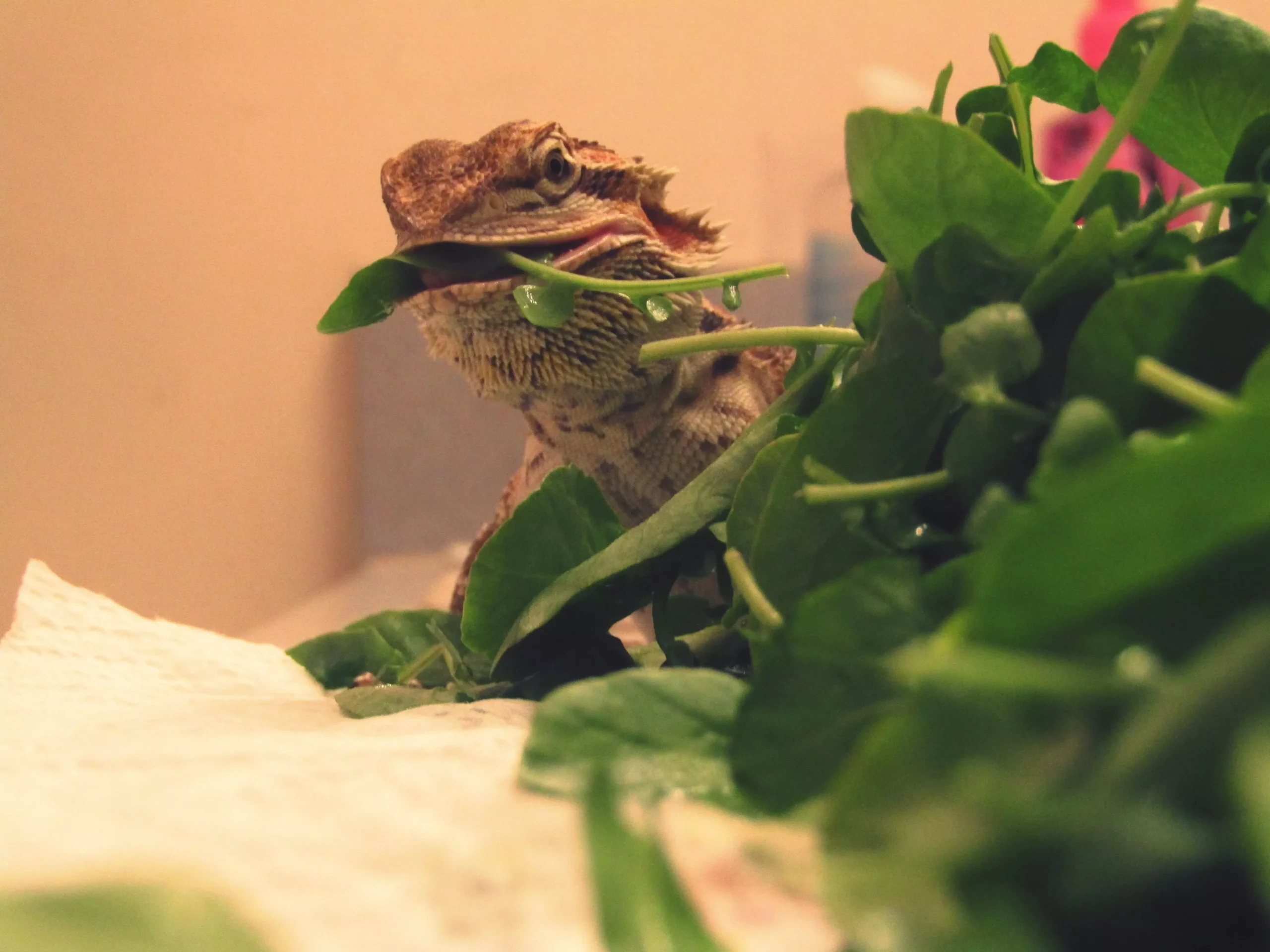Bearded dragons are complex reptiles that require a diligently balanced diet to thrive. As pet owners, it’s our responsibility to ensure that our furry companions receive adequate nutrients to maintain their health and vitality. This article dives deep into the essential dietary components required for adult bearded dragons, exploring the best greens, insects, and supplemental options that can cater to their needs.
The Importance of Leafy Greens
Dark, leafy greens should form the cornerstone of any bearded dragon’s diet. These vegetables provide crucial vitamins and minerals necessary for bone health and overall well-being. Adult bearded dragons should have a consistent supply of a variety of these greens every day. Not only do greens deliver essential nutrients, but they also enhance hydration—an often underrated aspect of reptile care.
Among the best sources of calcium, which is vital for preventing metabolic bone disease, options like endive, radicchio, and chicory stand out. For instance, chicory boasts a calcium-to-phosphorus ratio of 2.1:1, making it a strong choice. Yet, the key to a balanced diet lies in diversity; mixing different greens ensures your pet receives a spectrum of vitamins and minerals.
A word of caution: while high-calcium greens are superb, some varieties should be consumed in moderation. Greens like mustard greens, watercress, and kale have oxalates that can bind calcium and affect absorption. While they are not to be excluded entirely, careful consideration of portion size is critical in maintaining your dragon’s health.
Certain greens can pose risks if included too frequently in your bearded dragon’s diet. Spinach, for example, has a high oxalate content (between 600 and 750 mg per 100 grams) and should be offered sparingly, if at all. Similarly, chard and beet greens can interfere with calcium absorption, leading to potential health issues over time.
The best approach is to limit these foods to infrequent treats rather than staples in the diet. Understanding how various greens impact nutritional intake is foundational to providing a healthy diet for your pet.
The Role of Insects in Their Diet
Though greens are essential, adult bearded dragons also require a protein component that comes predominantly from insects. Gut-loaded crickets, roaches, and mealworms are ideal sources of protein and should be generously offered to ensure a well-rounded diet. Crickets, in particular, can provide about 19% protein, adding vital nutrients that balance the plant-based portion of their meals.
It’s important to remember that protein should not dominate their diet. Adult bearded dragons primarily need a variety of plants followed by insects. Too much protein can lead to health issues, much like improper proportions of greens.
Just as with humans, bearded dragons can develop specific preferences or even become picky eaters. Recognizing this, you should strive to offer various greens and insects in a visually appealing manner. Presenting a colorful salad can often entice reluctant eaters. Supplementing with small amounts of fruit such as strawberries or raspberries as “sprinkles” can draw their attention and encourage them to consume their salad.
Another effective strategy is to mix insects directly into the greens. This not only introduces a texture contrast but also offers a direct incentive for the dragon to enjoy its vegetables. Experimenting with bearded dragon pellets can also be viable, as these can be mixed into the greens to promote interest.
The Essential Role of Supplements
Finally, even with a balanced diet, achieving optimal health may require additional help. A calcium powder supplement can be beneficial, especially when dusted on their vegetable salad regularly—about a few times a week. Calcium is crucial for bone health, and a sprinkle can aid in fulfilling your bearded dragon’s dietary needs.
Remember, while bearded dragon pellets can complement their diet, they should never replace whole foods. Emphasizing a natural diet with fresh greens and proteins is paramount to ensure long-term health.
The health of your bearded dragon largely falls on the diet it consumes. A varied offering of dark, leafy greens, paired with appropriate insects and supplemental options, establishes the foundation for a robust and thriving dragon. Understanding the nutritional needs, along with recognizing the dangers associated with certain foods, will ensure that your delightful reptile flourishes. Adopting diverse feeding strategies while remaining vigilant about their health is the best way to provide the care they deserve.

